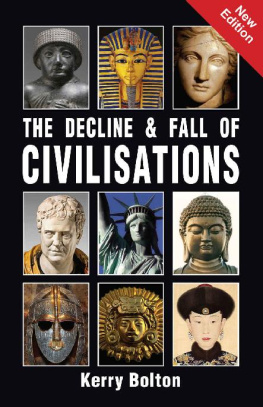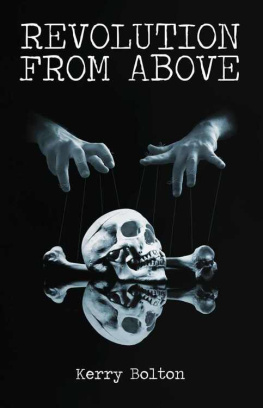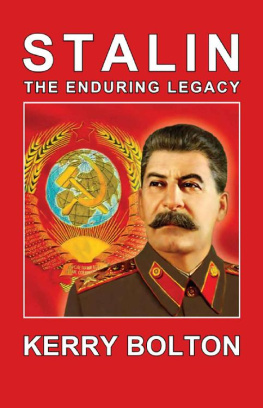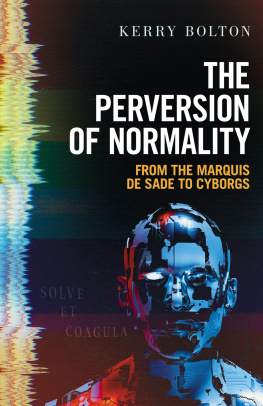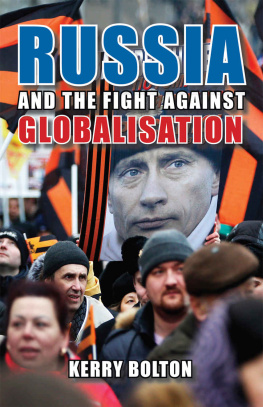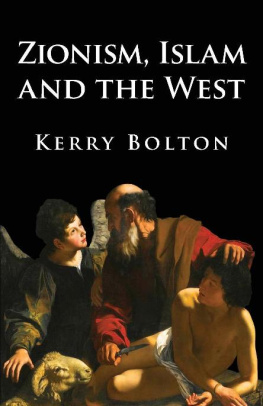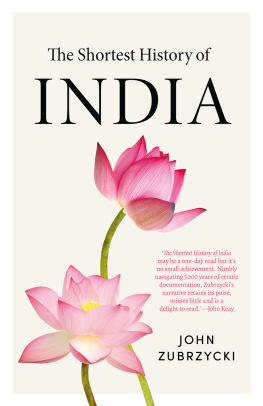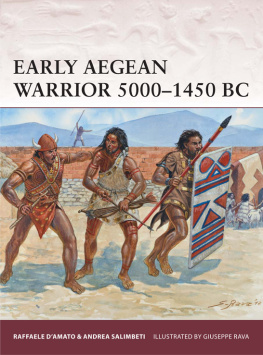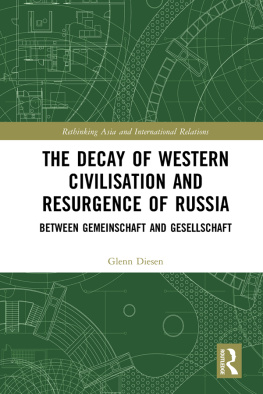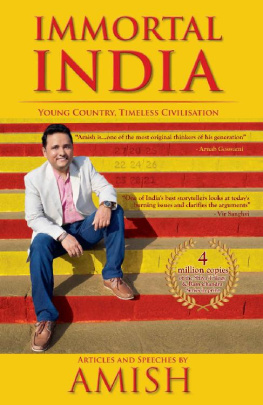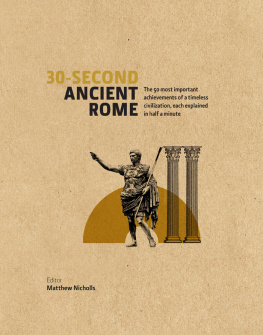The Decline and Fall of Civilisations
by
Dr Kerry R Bolton
The Decline and Fall of Civilisations
by Dr Kerry R Bolton
Copyright 2017 Black House Publishing Ltd
All rights reserved. No part of this book may be reproduced in any form by any electronic or mechanical means including photocopying, recording, or information storage and retrieval without permission in writing from the publisher.
Black House Publishing Ltd
Kemp House
152 City Road
London, United Kingdom
EC1V 2NX
www.blackhousepublishing.com
Email:
On the worlds loom Weave the Norns doom Nor may they guide it nor change
Richard Wagner, Siegfried Act III
The essence of history does not reside in recorded facts but in the thoughts, emotions, ideas and aspirations of the human beings who have made it Facts are only the outer shell History is life itself, and, like everything else that is alive, it has both a cyclical rhythm and a linear tension The great cycle which has been in evidence throughout history like a giant wheel of destiny revolves around the sequence leading from Culture to Civilisation.
Amaury de Riencourt, The Soul of China, xvii.
Turning and turning in the widening gyre
The falcon cannot hear the falconer;
Things fall apart; the centre cannot hold;
Mere anarchy is loosed upon the world,
The blood-dimmed tide is loosed, and everywhere
The ceremony of innocence is drowned;
The best lack all conviction, while the worst
Are full of passionate intensity.
W. B. Yeats, The Second Coming
Table of Contents
Foreword
W e are men and women living at the end of history. We are American vagabonds, relishing the promise of a horizon beyond which to pass. We are autochthonous Europeans, proudly defending what is left of our inheritance. Some of us are socially conservative, while others of us are violently revolutionary. Some pine for stasis and gentility, others burn for action and primitivism. Some of us are waiting to embrace a messiah, others of us to ambush him in a rhododendron thicket. Some have a God, others Tyler Durden and still others little more than the sensation of a chilly early-Fall breeze as we pause to watch a spider patiently devour a futilely struggling bumblebee.
But we are all here together. Well, not really. We are a collection of places without a place, too amorphous to be concentrated, but too autonomous to create a counter-power to the neo/post-liberal State and Capital.
Perhaps, though, having reasons more precisely, reason is what is holding us back and keeping us forever acted upon and never acting ourselves; keeping us stuck in the redundancy of being rational modern citizens and never immersed in the duration of becoming something else. For life is flow. It is constant change. There is perpetual energy and vitality, and there is stasis and death. As Dr. Kerry Bolton demonstrates herein, energy, vitality, stasis, and death come to define the boundaries of all living things including, and especially, cultures and civilizations.
With the light touch of an expert archaeologist, Dr. Bolton uncovers the remains of the various known civilizations that have fallen to the axe of time. One by one, Mesopotamia, Persia, Greece, Sparta, Rome, India, the Indus Valley, Arabia, Mesoamerica, Japan, Afrikaner South Africa, China, and others rise and fall; becoming unique and powerful expressions of human will, ingenuity, and problem creating and solving, that, for all of their power and the value of their values, disappeared. And as we pause in the light of Boltons words, we think about what the end mustve been like, what life became in the colorless shadow of their demise. But only for a moment, as both Bolton, and the miserable comfort of our lives remind us with glaring and unblemished clarity that we are living at the end of our own unique and powerful civilization, itself falling to the axe of time.
But time alone is not enough to fell something so powerful, so lasting, and so important. No, we are not so lucky that the somber and spurious judgment of objective forces alone acts to defeat what we die to create, for time gets a helping hand from human weakness, perfidy, greed, and righteousness. These human traits do not always manifest themselves in Boltons narrative in ways that will comfort many of his readers, though; for his analyses conclude that it was not simply immigration or miscegenation that precipitated civilizational collapses, but instead the becoming-mediocrity and decadence of imperial nobles via the contagion of leisure, luxury, and affluence, which themselves unleashed destructive forces of spiritual and cultural chaos.
But while boundaries are one thing, potentials and the fact of actually living the death of civilization are another. Things fall apart, Bolton tells us, but rarely do they do so of their own accord. And that is where we come in. The axes of this book are formed by civilizational creation and destruction, on one plane, and race and contemporary epistemography and politics, on the other. The nexus is the individual and his or her genetic, historical, situational - in short, epigenetic - potential as inheritors and guarantors of whatever the West was and, unfortunately, has now become.
As Western Civilization continues to confirm the vision of ancient and (counter)modern thinkers of civilizational birth and death yes, Spengler, we are indeed doomed! and, as we become experts at dystopic living, actually perusing magazines devoted to post-civilizational home furnishing strategies while breathing air thick with mediocrity, vulgarity, and the ignominy of our weakness in the face of death by asphyxiation, what, we ask, are we to do?
Thankfully, the pessimism of Boltons cast of characters does not engender defeatism as much as a renewed will to defiance of the captain and crew that continue to hunt bigger and sharper ice burgs into which our already sinking ship may be ever more destructively steered. While dismantling the corrosion of materialism and more importantly outlining the myriad symptoms of its ideational and conceptual power (from notions of progress to teleologies of development and evolution; from Marxist critiques which merely bolster the necessity of homo economicus to neoliberal globalists intent to impose a singular morality of consumption on each and every living thing on Earth; from zoological racists to anti-race racists) Bolton gives us the keys to reformulating our relations to and with the tiger we are riding.
He does so by providing a space in which to ponder the need for new tactics, images, and myths not to forestall the inevitable but instead to begin to create something of our lives that will be important and useful to future generations. In so doing whether we do so or not, really we will be playing our role in the building of whatever grows from the ashes of the West. For races, he tells us, are dynamic, ever changing, and never static, like people, peoples, and all living things. They can be changed, destructively or constructively, over generations, strengthening or debilitating individuals and stocks, being eugenically and dysgenically influenced by behavioral norms and political codifications.
Dr. Bolton clearly relishes explaining these behavioral norms and political codifications. Just as he swings away at the modern totems of the racial materialists, so too does he attack the epistemological foundations of those who might still harbor a soft spot for the State as an example of Western greatness. In fact, in his explanation of American politogenesis, which is now the hegemonic model of liberal state development, it is the same materialism that allows quantity to reign as the essence of the modern world that points to our demise in a sea of demos
Next page
